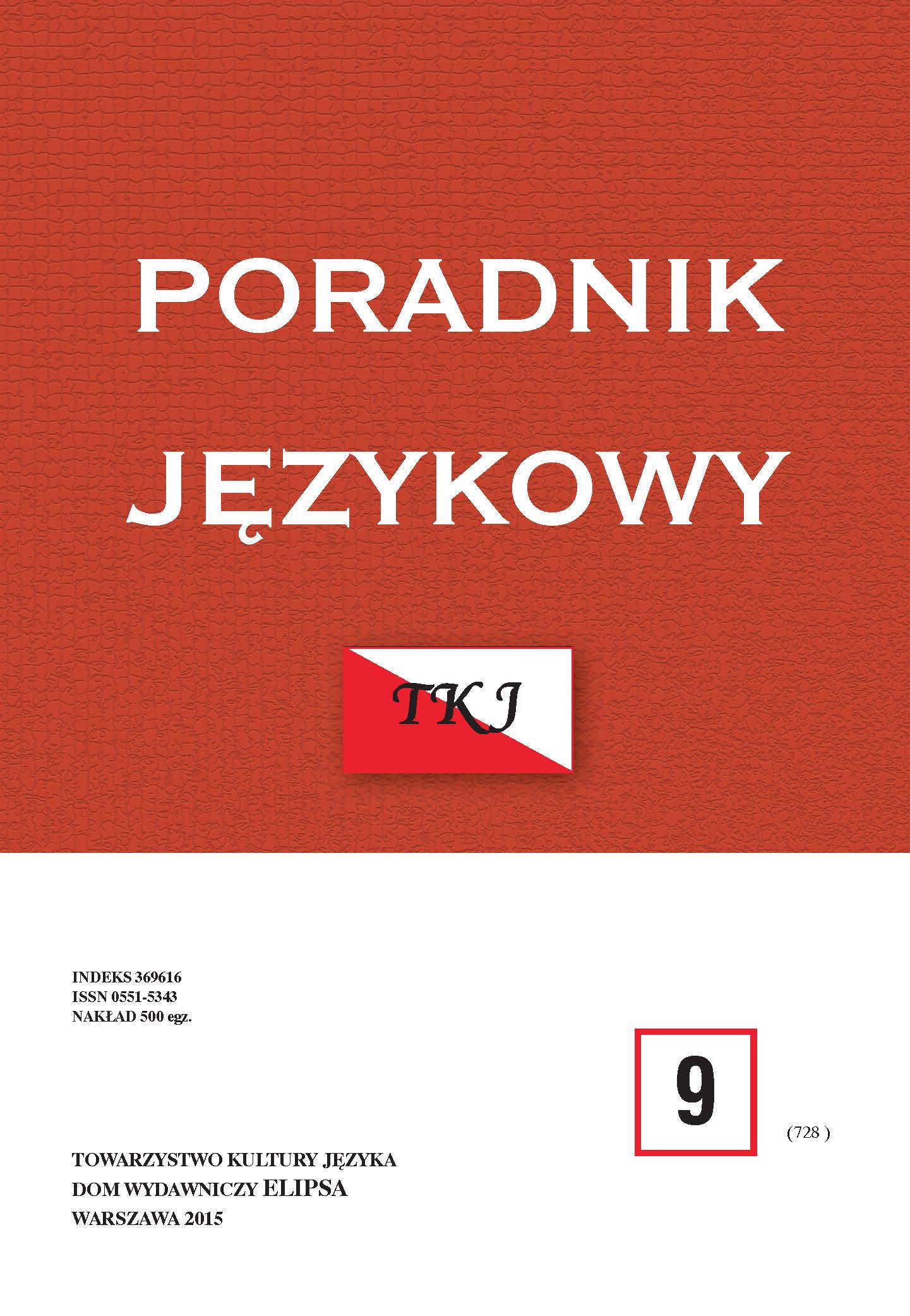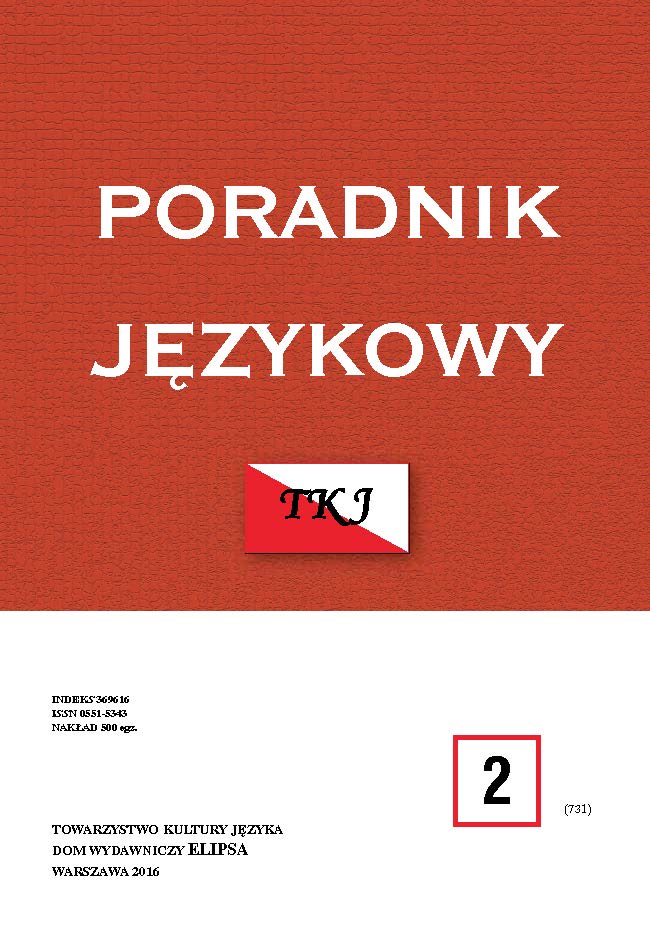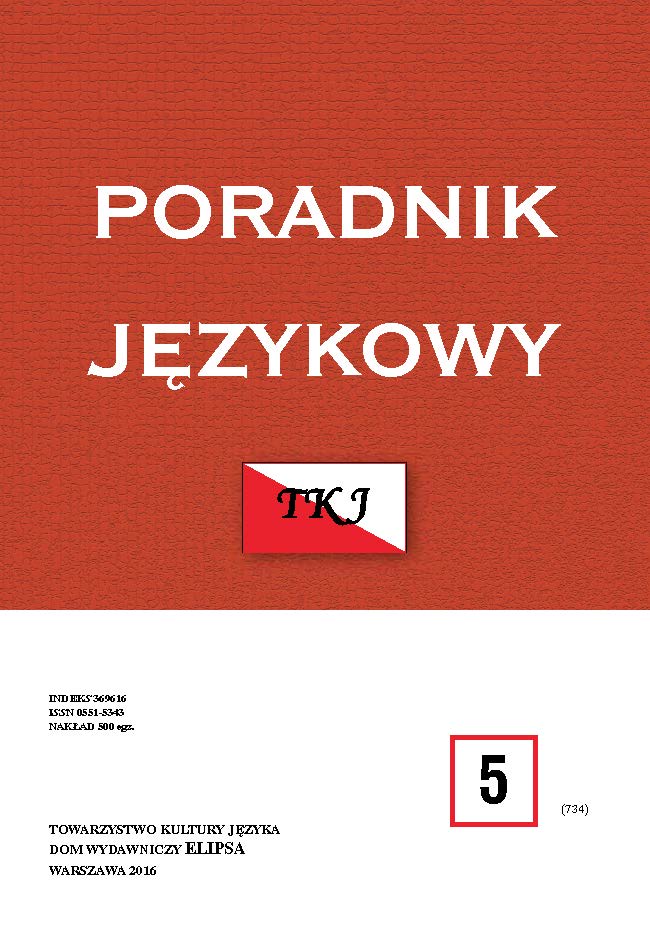
JAK USTALAĆ POZIOM GRAMATYCZNOŚCI WYPOWIEDZI?
The point of departure for the analyses presented in this paper is the conviction that there is no good method of determining the grammatical level of a text in Polish. The number of errors in any statement is only seemingly a proper indicator of grammaticality. This is because grammatical errors occur very rarely in typical Polish texts and moreover can be casual mistakes or their nature is questionable. The author of the paper suggests developing a method in which the main indicator of the level of grammaticality of any text is the number of grammatical units being a part of the grammatical level of the system. What appears to be particularly useful in this method in the case of Polish is other than basic infl ectional forms and close syntactic connections (based on accommodation).
More...

